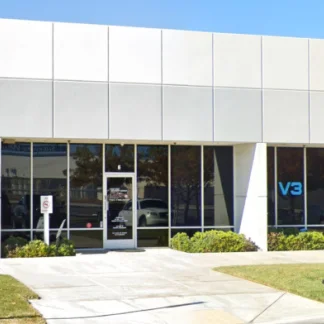Revival Recovery Services
Revival Recovery Services is a private rehab located in Apple Valley, California...
First Step Recovery Center, located in Victorville, California, provides alcohol and drug rehab services to adults. Their levels of care include intensive outpatient programs (IOP), medication-assisted treatment (MAT), and outpatient treatment.
The medication-assisted treatment program combines FDA-approved medications with mental health counseling. Clients work with staff to identify their core reasons for using addictive substances so they can create new, healthy coping patterns and address underlying issues. They also create a relapse prevention plan.
The intensive outpatient program meets three times per week, for three hours at a time. Individuals engage in mental health counseling, group counseling, relapse prevention planning, skills-building classes, and educational programming. Topics include emotional regulation, working through triggers, and how to repair relationships.
The outpatient program provides the opportunity to work with a mental health counselor to address issues pertaining to addiction and dual diagnosis, along with life challenges.
First Step Recovery Center accepts most insurance plans, including Amerigroup, Anthem, Beacon, Magellan, Cigna, and ComPsych. Out of network benefits may vary, so it’s important to verify coverage with your provider prior to starting treatment.
Contact us for more information: (760) 780-1237

Connect with First Step Recovery Center by calling their admissions team directly.
(760) 780-1237 Website Get DirectionsThe Commission on Accreditation of Rehabilitation Facilities (CARF) is a non-profit organization that specifically accredits rehab organizations. Founded in 1966, CARF's, mission is to help service providers like rehab facilities maintain high standards of care.
CARF Accreditation: Yes
Research clearly demonstrates that recovery is far more successful and sustainable when loved ones like family members participate in rehab and substance abuse treatment. Genetic factors may be at play when it comes to drug and alcohol addiction, as well as mental health issues. Family dynamics often play a critical role in addiction triggers, and if properly educated, family members can be a strong source of support when it comes to rehabilitation.
Group therapy is any therapeutic work that happens in a group (not one-on-one). There are a number of different group therapy modalities, including support groups, experiential therapy, psycho-education, and more. Group therapy involves treatment as well as processing interaction between group members.
In individual therapy, a patient meets one-on-one with a trained psychologist or counselor. Therapy is a pivotal part of effective substance abuse treatment, as it often covers root causes of addiction, including challenges faced by the patient in their social, family, and work/school life.
Group therapy is any therapeutic work that happens in a group (not one-on-one). There are a number of different group therapy modalities, including support groups, experiential therapy, psycho-education, and more. Group therapy involves treatment as well as processing interaction between group members.
In individual therapy, a patient meets one-on-one with a trained psychologist or counselor. Therapy is a pivotal part of effective substance abuse treatment, as it often covers root causes of addiction, including challenges faced by the patient in their social, family, and work/school life.
In individual therapy, a patient meets one-on-one with a trained psychologist or counselor. Therapy is a pivotal part of effective substance abuse treatment, as it often covers root causes of addiction, including challenges faced by the patient in their social, family, and work/school life.
Revival Recovery Services is a private rehab located in Apple Valley, California...
MHS - Helping Hands offers families the help and support they need to stay toget...
VA Loma Linda Healthcare System - Victorville Community Based Outpatient Clinic ...
Located in Victorville, California, High Desert Child, Adolescent, and Family Se...